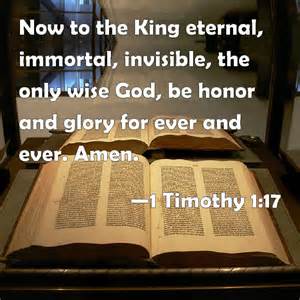“Be Like Martin Luther” – October 25, 2020

Psalm 46:1-3 – Reformation Sunday
Here we are at Reformation Sunday, the week of the year when we remember Martin Luther posting his list of grievances against the church establishment of the Catholic Church, more than 500 years ago in 1517. These 95 grievances against the Church sparked a movement of protest that was felt around the world. And thus, the Protestant Church was born.
Father Martin Luther – for he was a Catholic priest – was a sincere, devout follower of Jesus Christ. He thought long and hard about sin and confession, faith and grace. He also thought a lot about God’s Word, and eventually translated the whole Bible – both Old and New Testaments – into German, the common tongue of his day and area of Germany.
The Catholic Church establishment certainly had it in for Martin Luther! After defending himself against strident criticism from scholars and theologians, and legal challenges for years, the official verdict was not in Luther’s favor. Because he would not recant his views on God, salvation by faith, and the Bible, Luther was officially on the run from the establishment.
Which brings us to our Scripture reading for today. Psalm 46. Martin had a very difficult time of it for a number of years, running in fear for his life. Is it any wonder that this marvelous psalm recounting God’s strength and refuge was Luther’s favorite psalm?
This is Reformation Sunday, after all. What could be more appropriate than to read Luther’s favorite psalm? Except – this was not only a favorite Scripture reading of Martin Luther. He also was a composer and poet. /Luther wrote the words and music for our opening hymn, “A Mighty Fortress Is Our God.” He used this psalm of comfort and refuge as a basis for this marvelous hymn.
In German, this hymn is called “Ein Feste Burg,” “a fortification that holds fast against any assault, a castle that can withstand every onslaught, a citadel that keeps those on the inside safe and secure from all attacks.” [1] Is anyone surprised that Martin Luther considered this comforting psalm his favorite? Even though everything is falling apart on all sides, he can stand safe and secure in his Lord.
I know Luther regularly prayed to God for protection and care, both internally as well as externally. Is that similar to us, today? In this year of the pandemic, with all the extreme weather events, the political disruption, and the wildfires of the past several months – the present situation resembles Psalm 46. “though the earth give way and the mountains fall into the heart of the sea, 3 though its waters roar and foam and the mountains quake with their surging.”
Sure, with everything going on in the world today, we have reason to be scared half to death! Yet, we have “a God who has been time-tested and, over and over again, can be trusted upon to keep you secure in your time of trouble. Either way – and in all times and circumstances – you have a God who has got you covered. That is what Psalm 46 declares. And that is what Luther wanted to proclaim in “A Mighty Fortress is Our God.”” [2]
This precious hymn written by Luther was not only a refuge from earthly disasters, but is also personal in nature. Rev. Janet Hunt, a Lutheran minister, mentions that she hears it “as much more personal now, knowing as we do that ‘the old satanic foe’ threatened him with the sorts of ‘woes’ one could only begin to understand if one has been there. The heart-wrenching, life altering death of a child, to name but one. The days and nights of struggling to hold on to faith when the Church which had borne the faith to him no longer lived up to its promises. The fear which must have possessed Luther as his very life was threatened.” [3]
Thinking back to last week’s sermon, where Moses and the Lord were hanging out on top of the mountain, Moses wanted to see the Lord. God told Moses straight out that Moses would die if he beheld the Lord face to face. Isn’t that the God we have right here, in Psalm 46? Even though the all-powerful God could make the earth melt, and destroy us if we simply look at Him.
That is one mighty, all-powerful God! And to think, that is also the God who has chosen us, called us by name, and named us God’s beloved children. The Lord is a God who is Lord Almighty, maker of heaven and earth. Plus, the Lord is also a safe refuge, a comfort, one we can run to in times of great need. Praise God, I do not need to control everything.
Can we – you and I – loosen our tight grip on all we are clutching to our chests, knowing that God indeed holds everything? Including us?
This Reformation Sunday, I am not focused on God as our Mighty Fortress. Instead, Psalm 46 talks of a refuge, and a help in our great need.
Yes, God is indeed our refuge and strength, an ever-present help in trouble. That’s something to truly celebrate. Alleluia, amen.
[1] http://www.workingpreacher.org/preaching.aspx?commentary_id=754
Commentary, Psalm 46, Hans Weirsma, Reformation Day, Preaching This Week, WorkingPreacher.org, 2010.
[2] “A Mighty Fortress is our God” is not the only English translation of Luther’s “Ein Feste Burg.” Thomas Carlyle, the nineteenth century Scottish commentator, offered this version: “A safe stronghold our God is still, a trusty shield and weapon.” Carlyle’s contemporary, George MacDonald, rendered stanza one, verse one, in this way: “Our God he is a castle strong, a good mailcoat and weapon.”
[3] https://dancingwiththeword.com/being-still-letting-go/
(Suggestion: visit me at my regular blog for 2020: matterofprayer: A Year of Everyday Prayers. #PursuePEACE – and my other blog, A Year of Being Kind . Thanks!

